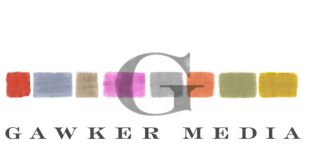By Nicole Pimental – Ithaca College (Journalism, ’20)
If building an independent media outlet from the ground up was easy, I’m sure many journalists would ditch the competitive world of corporate media. But, alas, for an outlet to be successful you need a number of elements: a platform to disseminate information, persons to write the content, persons to consume the content and, most importantly, money to make the other three happen. It’s no secret that independent journalists usually lack a million dollars or so to throw towards a start-up. But as Indy media pioneer Kevin Kelly says, you don’t need a million dollars; you don’t even need a million readers.
A good portion of funding for Indy media start-ups comes from donations. Kelly said his formula for obtaining funds included a modest number of a thousand “true fans” AKA readers to donate approximately $100 per year. Do the math, and that many “true fans” can contribute up to $100,000 annually. Talking Points Memo founder, Josh Marshall wanted to cover the New Hampshire primary in 2003 for his blog, so he asked his viewers for financial support. Within 24 hours he had received approx. $6-7,000 dollars to go. Personally, I think the idea of simply asking for money and actually receiving it is bizarre, but you’d be surprised at the number of people willing to give money when given a good enough reason.
It’s also important to consider the types of outlets you can publish content on as the platform can greatly affect the resources needed to launch and grow an Indy outlet. Gawker Media founder Nick Denton launched his online network in 2002 and said there was an advantage in running a publication from his SoHo apartment; “if you have an office, people want stuff. They want cell phones, lunch breaks, beer on Fridays. If you run it out of your house, then no one expects anything.”
Gawker grew larger and based their operations in a large loft in Nolita, and it consisted of a team of 120 writers, or as Denton called them, “elegantly jaded bloggers who considered themselves outsiders with nothing to lose”. The writing was yellow-journalism inspired and questionably colorful. But Gawker, like many independent outlets, wrote about the stories mainstream media left out, and it was fearless when calling out corporate billionaires.
Gawker met its demise when their coverage of the Hulk Hogan scandal ended with a lawsuit that bankrupted both the publication and Denton 3. It was later discovered that entrepreneur Peter Thiel had funded the lawsuit as he was outed by Gawker in 2007. The issue of corporate billionaires using their power to control the media industry is a problem for mainstream media, but for independent media, as in Gawker’s case, it can be detrimental. As difficult as it is for independent outlets to be launched, it can be even more difficult to sustain without the financial strength to protect themselves from issues like lawsuits.

